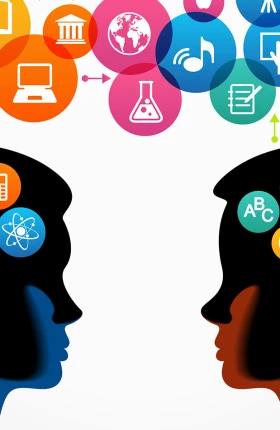To thrive in the 21st century, students must be adept at collaboration, communication, and problem solving—a few of the skills developed through social and emotional learning (SEL). Social and emotional skills can strengthen the labor force, boost academic performance, and produce long-term benefits such as higher rates of employment and educational attainment.
But a new global survey conducted by The Boston Consulting Group (BCG) found that parents and educators have a narrow understanding of SEL. They view SEL primarily as a means of achieving better classroom discipline rather than as a way of ensuring better academic and economic outcomes over the long term.
Education technology can help address this and other key barriers to fostering SEL while complementing and extending children’s learning experiences, according to a new report by the World Economic Forum titled New Vision for Education: Fostering Social and Emotional Learning through Technology , written in collaboration with BCG. Education technology can personalize learning, engage the disengaged, complement what happens in the classroom, extend education outside the classroom, and provide access to learning to students who otherwise might not have sufficient educational opportunities.
To date, however, most of the learning strategies commonly used to develop social and emotional skills do not use technology or use it in only a limited way. While many parents and educators recognize the potential for education technology to build social and emotional skills, they do not fully understand which technologies hold the most promise or how to use them best. For example, in the US, 67% of teachers believe technology is best used for foundational subjects, such as literacy and numeracy; in comparison, only 43% believe it is best used for social and emotional skills—results that are similar to findings in other countries.
The report finds that policy makers, parents, educators, and others seeking to use technology to give children the social and emotional skills they need can pursue three critical opportunities:
- Help parents, educators, and others understand what really boosts social and emotional learning. On the basis of our extensive research, we have identified 55 product features (detailed in the report) that are highly correlated with the ten critical social and emotional skills.
- Embed SEL into products that support foundational skills such as literacy and numeracy, where 95% of venture-capital investment dollars directed to education technology have flowed since 2011.
- Take advantage of recent technological innovations—such as wearable devices, virtual reality, and apps—to foster SEL.
Advancing SEL will require a sustained effort from a multifaceted group of stakeholders—including policy makers, educators, parents, researchers, businesses, technology developers, and investors. They must overcome the challenges that slow the development of SEL and related education technologies. Policy makers in particular must stand at the forefront of setting the agenda for policy change, prioritizing efforts that foster SEL and related assessments and measurements in education, as well as providing funding and other resources for the research and adoption of SEL and related education technologies. The development of standards and ratings processes should be a top priority. Parents and educators also play a vital role, collaborating to capitalize on what works to foster SEL at home and at school.
If stakeholders work together, particularly at the all-important stage of setting the policy agenda, they can change perceptions and behaviors about SEL. Together, stakeholders can establish enduring policies that fully incorporate SEL into a child’s education and development.








